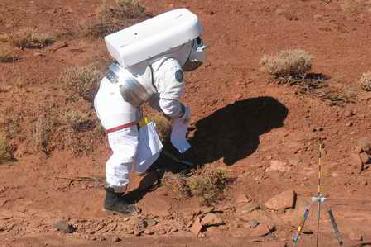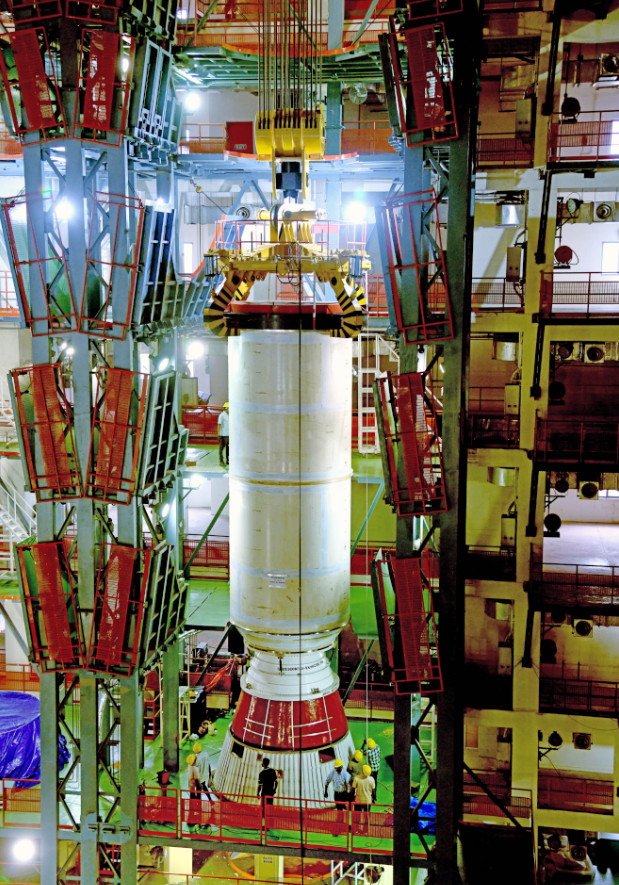
Extra Vehicular Activity spacesuit undergoes testing. NASA photo
WASHINGTON (BNS): A group of engineers, astronauts and geologists spent the last week testing NASA’s newest lunar rover prototype in the Arizona desert for future lunar road trips.
In first week of tests, the rover had been driven on daylong trips to determine how each configuration performed. “These have been some of the longest drives the prototype has ever made, but next week the group will step it up another notch or two, by going on a three-day drive through the desert in the SPR to determine how it performs and whether it's comfortable enough for long-duration trips,” NASA said.
Two teams of one astronaut and one geologist each drove the Small Pressurised Rover in the 11th annual Desert RATS field tests. RATS is short for Research and Technology Studies -- to remote locations in Arizona or California, which figuratively bring the moon and Mars right down to Earth.
The teams tested concepts for spacesuits and rovers that could be used during NASA's next trip to the moon. “NASA is on its way back to the moon, the lessons of Desert RATS are being put to good use,” NASA officials said.
NASA said that one configuration left the crew members free to get on and off the rover whenever they liked, but wearing spacesuits at all times to protect them from the lunar environment. The second configuration, called the Small Pressurised Rover (SPR) added a module on top of the rover’s chassis that allowed the crew to sit inside as they drove the vehicle, donning spacesuits whenever they wanted to get out.
As the space shuttle approaches retirement and the International Space Station nears completion, NASA is building the next fleet of vehicles to bring astronauts back to the moon, and possibly to Mars and beyond.
 Previous Article
Previous Article











The Indian Air Force, in its flight trials evaluation report submitted before the Defence Ministry l..
view articleAn insight into the Medium Multi-Role Combat Aircraft competition...
view articleSky enthusiasts can now spot the International Space Station (ISS) commanded by Indian-American astr..
view article